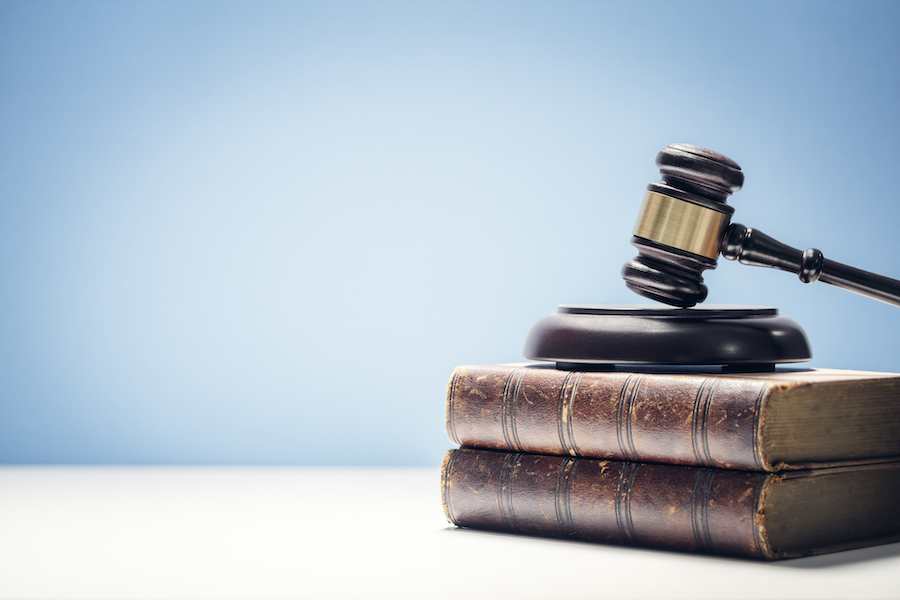These latest adopted city rules could impact the OATH Hearing Process – read on to learn how they could impact your team.
During our Summer Compliance Check-In Webinar (which you can watch here, on-demand!), we chatted about some proposed rules surrounding the OATH hearing process. Specifically, how new verification of representation will be required, and how OATH procedures could impact the way you interact with your chosen attorneys, representatives, and compliance experts.
Two separate rules were put into place. We’ll review key findings from both, and link each full rule for your reference.
Requirements For Registered Representatives
Some of the biggest changes in the final OATH rule are for registered representatives.
The definition of a representative (which was updated in this rule) means “an individual who is not an attorney admitted to practice in New York State but who is authorized by a respondent to appear on behalf of the respondent.” Attorneys that are disbarred or suspended in any state may not be representatives. Additionally, representatives must not falsely claim to be attorneys or governmental employees, or even “falsely imply as much.”
Representatives have to adhere to a number of requirements, including these new ones:
- Preparing and submitting documents on behalf of the Respondent, including timely motions and appeals;
- Acquiring basic knowledge of the facts and applicable law charged in the summons;
- Appearing on scheduled hearing dates;
- Ensuring that written statements or documents submitted to the Tribunal are what the statements or documents are purported to be and that witnesses making oral statements are who the witnesses purport to be;
- Acting in the Respondent’s best interests and according to lawful instructions from the Respondent; and
- Avoiding conflicts that would impair the Representative’s ability to act in the Respondent’s best interests.
While some of these may sound obvious (any quality representative would want to ensure best practices are in place) the city notes that these rules were created with the following goal in mind:
These amendments represent important steps in OATH’s continuing efforts to identify and stop impersonators and fraud, facilitate professionalism and efficiency, and protect the integrity of OATH proceedings
Representative Must-Do’s – Including A New Authorization
In order to represent a named respondent, representatives must now do the following:
- Provide an authorization form prior to the hearing
- Retain the signature of the person authorizing the Representative and produce it to OATH upon request
- Paper signatures must be original signatures
- Electronic signatures must be in a format identified as acceptable on a website maintained or controlled by OATH
- Failure to produce said form “creates a rebuttable presumption that the registered Representative is not authorized to represent the Respondent through the end of the proceeding”
Representatives will be subject to discipline for failing to follow these new rules, or any other rules of OATH Tribunal. To that end, the rules continue to explicitly describe forms of misconduct. Engaging in one of the many forms of misconduct may result in representatives being suspended or barred from attending a proceeding. OATH may also make a public list of individuals who have been suspended or barred.
Authorizations Required For Attorneys
In addition, a separately promulgated rule requires that attorneys also obtain authorizations for OATH hearings. Representatives AND attorneys must:
…keep and maintain the authorization to appear form with the original signature of the person authorizing the representation, produce it to the Tribunal upon request, and include a copy of it with all e-mail correspondence to the Tribunal relating to that representation (including but not limited to requests for telephone or online hearings).
Same as the representative requirement, this allows for electronic signatures. Please note that OATH’s current website says attorneys are not required to submit this form. We expect this to change around the effective date of September 11, 2022. We’ll keep you posted if there are any adjustments to that end.
OATH Policies on “Timeliness”
Additionally, in an effort to streamline the OATH hearing process, the city has put forth rules that sets specific requirements for “timeliness.” While the city has noted its goal is to streamline the OATH hearing process and make things easier for all parties, the new rules may have an impact on attorneys & representatives who handle a number of cases in a single day.
In response to comments stating that signatures may be a high burden for some clients, and that rescheduling can be a painful process, OATH recommends using remedies like vacating default judgments (now within 75 days from the default date) where applicable.
Our office had the chance to speak with Lindsay Garroway, Esq. (Partner at premier administrative law firm Cohen Hochman & Allen), who mentioned that despite these new requirements, we still don’t know how things will be actually enforced. With that said, it’s a good idea to huddle with your attorney or representative about how these changes could impact scheduling for any upcoming hearings you may have. If you’d like to chat with Linsday directly, let us know at support@sitecompli.com and we’ll connect you!
Bottom line? It’s important to know the specific role of the person representing your team at OATH hearings (representative, attorney, etc.), and how that may impact the process. All the above rules go into effect on September 11, 2022 – make sure you connect with your experts before then, especially if you have any OATH hearings on the horizon.




